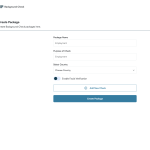Small and Medium-sized Enterprises (SMEs) are the backbone of Ghana’s economy, contributing about 70% of the country’s GDP and employing over 80% of the workforce.
However, SMEs in Ghana face many challenges, such as limited access to finance, high transaction costs, and low digital literacy. These factors hinder their growth and competitiveness in the global market.
One of the solutions that could address these challenges is WhatsApp Payments, a feature that allows users to send and receive money through the popular messaging app.

WhatsApp Payments was launched in India in 2018 and has since expanded to other countries, including Brazil, Mexico, and Indonesia. In Ghana, WhatsApp Payments is yet to be officially introduced, but there are indications that it could be coming soon.
Benefits
WhatsApp Payments could be a game-changer for SMEs in Ghana, as it could offer them several benefits, such as:
Faster and easier payments
WhatsApp Payments could enable SMEs to receive payments instantly and securely from their customers, without requiring them to leave the app or share their bank details. This could improve customer satisfaction and loyalty, as well as cash flow management.
Wider customer reach
WhatsApp Payments could allow SMEs to access a larger and more diverse customer base. With over 10 million active WhatsApp users in Ghana, SMEs could tap into a huge potential market for their products and services.
Enhanced digital presence
WhatsApp Payments could help SMEs to boost their online visibility and reputation, by enabling them to create professional profiles, showcase their offerings, and conduct promotional campaigns on the app. This could increase their brand awareness and customer engagement.
Challenges
WhatsApp Payments is not without its challenges, however. Some of the possible barriers that could limit its adoption and impact include:
Regulatory uncertainty
WhatsApp Payments is subject to the approval and oversight of the relevant authorities in each country where it operates. In Ghana, this would include the Bank of Ghana, the National Communications Authority, and the Data Protection Commission. These bodies would have to ensure that WhatsApp Payments complies with the existing laws and regulations on data privacy, consumer protection, anti-money laundering, and cybersecurity.
Technical issues
WhatsApp Payments relies on the availability and reliability of internet connectivity and mobile network services. In Ghana, these are not always guaranteed, especially in rural areas where internet penetration is low and network coverage is poor. This could affect the functionality and accessibility of WhatsApp Payments for both SMEs and customers.
User behavior
WhatsApp Payments would require users to change their habits and preferences when it comes to making and receiving payments. Some users may be reluctant or resistant to adopt WhatsApp Payments due to lack of trust, familiarity, or convenience. This could affect the demand and uptake of WhatsApp Payments among SMEs' target customers.
Despite these challenges, WhatsApp Payments has the potential to revolutionize the way SMEs in Ghana do business. It could offer them a convenient, affordable, and secure way to connect with their customers and grow their revenues.
However, for this potential to be realized, there is a need for more awareness, education, and collaboration among all the stakeholders involved, including SMEs themselves, WhatsApp, regulators, service providers, and customers.
Catch up on news and other tidbits on our WhatsApp Community Page, Twitter/X, and subscribe to our weekly newsletter to ensure you don’t miss out on any news.










